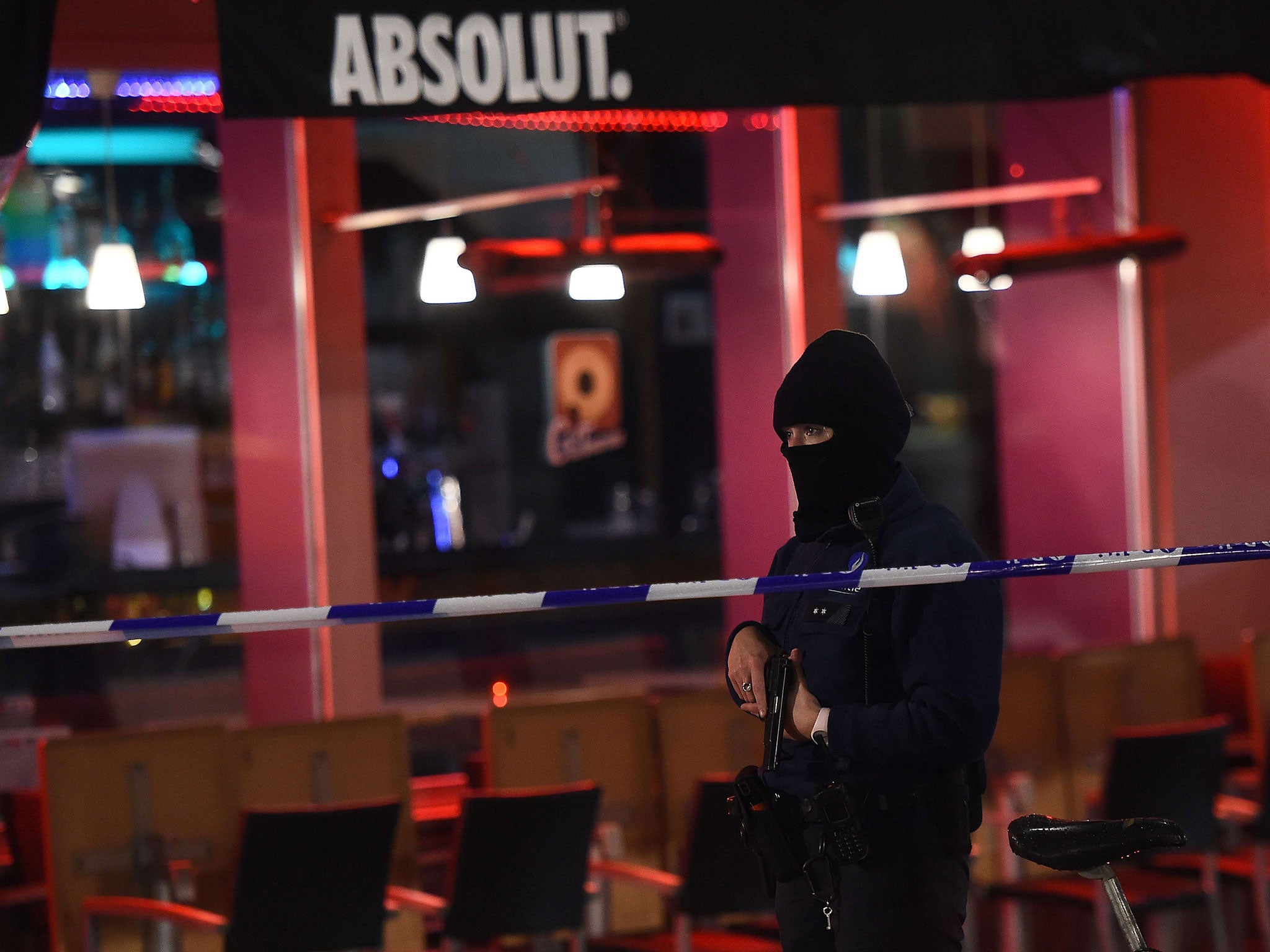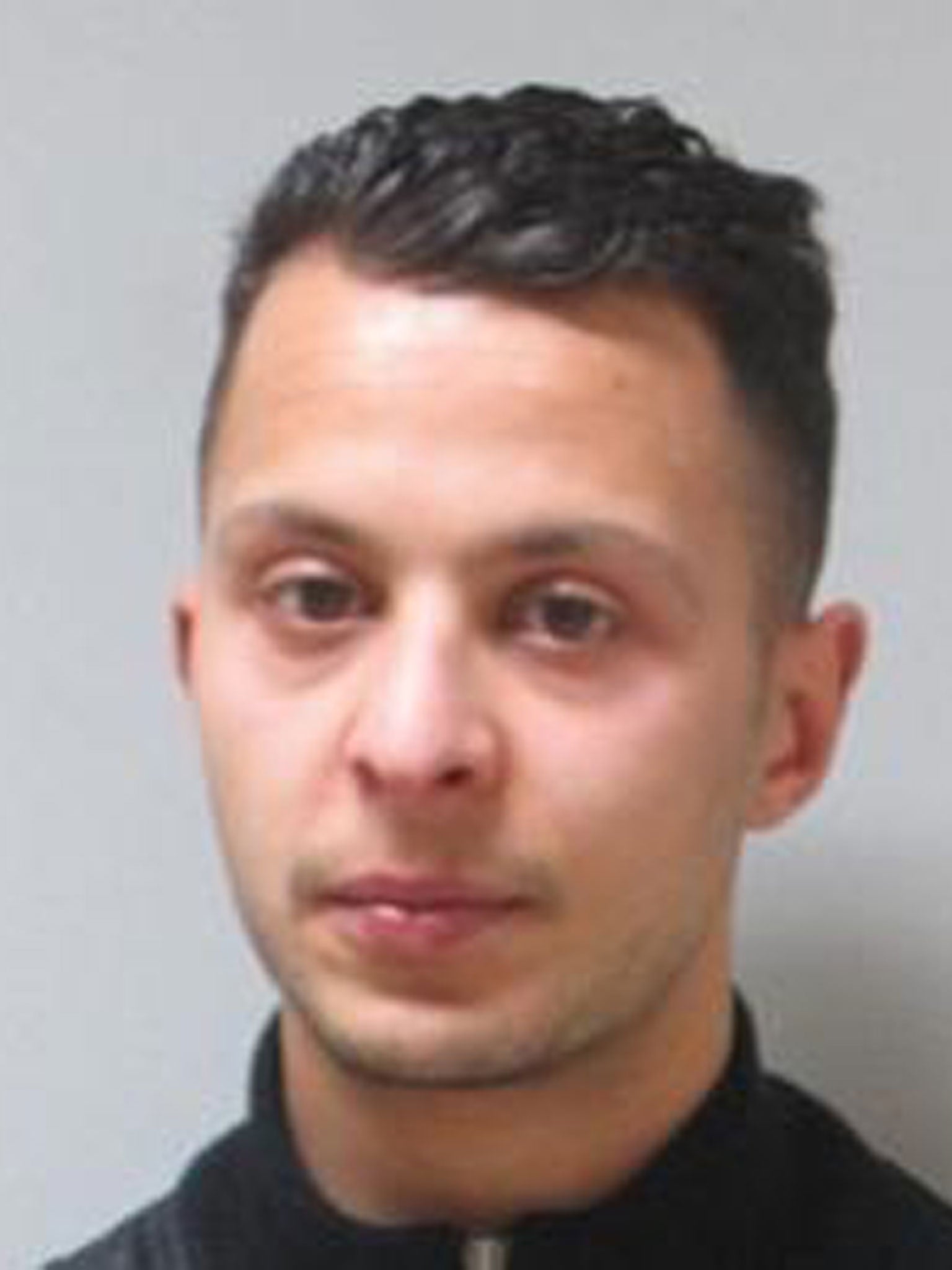Paris attacks: Brussels faces third day in lockdown as Salah Abdeslam remains at large
Armed police and soldiers patrol the streets as cinemas, museums, swimming pools and underground car parks stay closed

Your support helps us to tell the story
From reproductive rights to climate change to Big Tech, The Independent is on the ground when the story is developing. Whether it's investigating the financials of Elon Musk's pro-Trump PAC or producing our latest documentary, 'The A Word', which shines a light on the American women fighting for reproductive rights, we know how important it is to parse out the facts from the messaging.
At such a critical moment in US history, we need reporters on the ground. Your donation allows us to keep sending journalists to speak to both sides of the story.
The Independent is trusted by Americans across the entire political spectrum. And unlike many other quality news outlets, we choose not to lock Americans out of our reporting and analysis with paywalls. We believe quality journalism should be available to everyone, paid for by those who can afford it.
Your support makes all the difference.Brussels faces a third day in an effective state of emergency, with all schools, universities, metro services and shopping centres closed as Belgian forces continued their manhunt for terrorists apparently determined to attack the city.
“The threat remains serious and imminent in Brussels,” the Prime Minister Charles Michel saidas he maintained the city’s terror threat warning at its highest level. Despite the disruption facing the capital’s one million residents, Mr Michel said the measures would stay in place, and soldiers and police would continue to guard key buildings. The decision would “complicate economic and work life”, but Mr Michel said the government had to “assume its responsibilities”.
The security lockdown maintains the decision on Saturday to raise the terror threat, amid fears of an imminent Paris-style terrorist attack. Since then, armed police and soldiers have patrolled the streets while cinemas, museums, swimming pools and underground car parks have been closed. Local football matches and concerts have also been cancelled. The threat level, however, remains at three – the second-highest level – for the rest of the country.
Mr Michel was speaking after a meeting of Belgium’s national security council – which gathers the Prime Minister and various ministers. “The risk is from an attack similar to the one which took place in Paris, with attacks that could be launched simultaneously in several places,” he said.
The move to raise the threat level came as officials warned that one of the Paris attackers, Salah Abdeslam, was in the city and equipped with a suicide belt. However, they added that he was not the only terrorist suspect in the city. Abdeslam, 26, the only survivor among the attackers, is now thought to have panicked or rebelled before completing the tasks allocated to him by Isis.
French investigators have suspected for several days that he might have panicked before going through with a final suicide attack in northern Paris. Fresh evidence has emerged over the weekend to support this theory.

A French investigation source said that Abdeslam’s movements on Black Friday – wandering in the Paris area for seven hours and calling friends in Brussels to drive three hours to rescue him – “made no sense” as part of an otherwise meticulously planned jihadist attack.
“It seems he lost control,” the source said.
Abdeslam’s older brother Mohamed – a council official cleared of all suspicion last week by Belgian investigators – told Belgian television that it was his “intimate conviction” that Salah “changed his mind at the last minute”.
“He perhaps saw something or heard something that went beyond what he was expecting and decided not to go through with what he was involved in,” Mohamed Abdeslam told the broadcaster RTBF.
The US TV network ABC reported that “friends” of Abdeslam in Brussels had told one of its reporters that they received a call on Skype from the missing terrorist last Tuesday. They said that the young man – previously known as a dissolute minor criminal and, according to one report, a homosexual rent boy – was on the run from Isis as much as from the Belgian and French authorities.
Having reviewed the evidence, French investigators now doubt that their original belief Salah Abdeslam was part of a three-man murder squad which machine-gunned café and restaurant terraces in the 10th and 11th arrondissements of Paris. Instead, they believe that he drove a black Renaut Clio which delivered three suicide bombers to the Stade de France that evening. If that was the case, it suggests there may have been a 10th attacker.
The Clio, found abandoned in the 18th arrondissement last week, entered Paris soon after 9pm on 13 November. At 10.30pm, mobile phone records show, Abdeslam telephoned two friends in Brussels pleading with them to drive 200 miles to rescue him.
The security lockdown in Brussels meant that the city looked like a ghost town as most people heeded the warnings to stay away.
Join our commenting forum
Join thought-provoking conversations, follow other Independent readers and see their replies
Comments